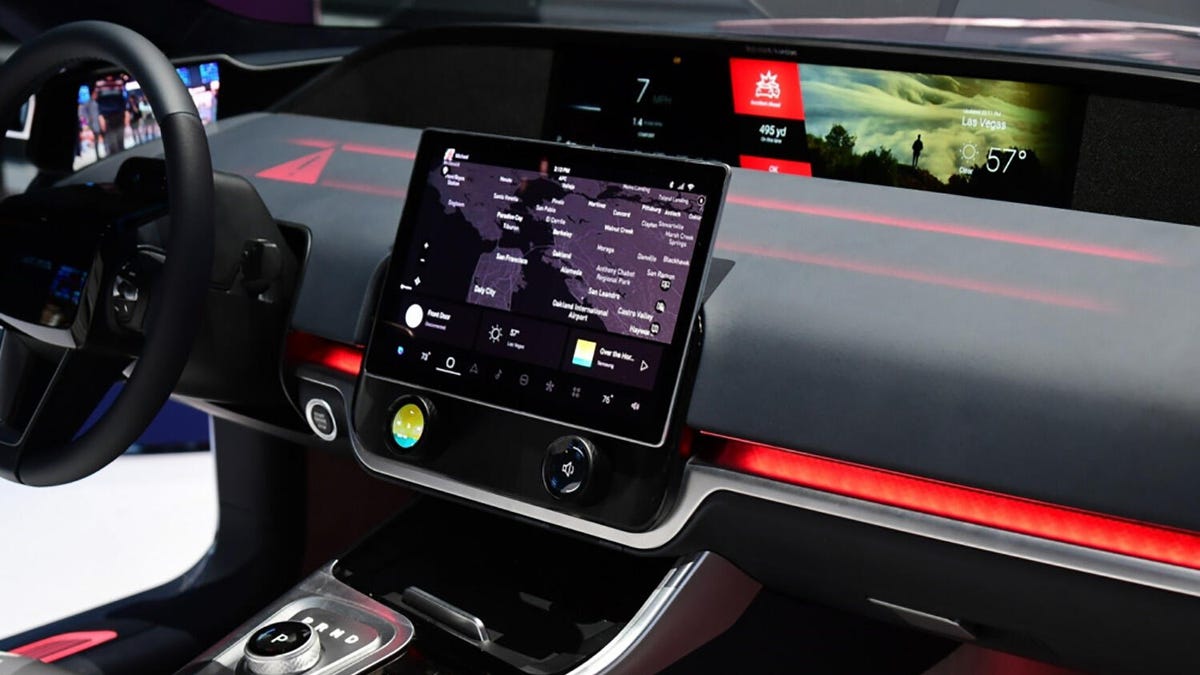Digital cockpits will become the norm this decade, research says
Future cars will, by and large, say goodbye to analog gauges as digital clusters and more screens become mainstream.

The future, probably.
Remember when the Tesla Model S launched at all anyone could discuss was the massive tablet-like touchscreen? Tesla was ahead of the curve, and its type of interior design isn't going anywhere, according to the latest research from ABI Research. This will be the decade when analog-style gauges finally exit the mainstream. In their place, more digital clusters and cockpits will proliferate.
The research is hardly surprising as we've already started to see latest wave of new vehicles set to release in the next few years sport massive screens and digital displays. Heck, the Jeep Grand Wagoneer concept boasts a screen for the front seat passenger. But this kind of technology won't remain with only the fanciest, most expensive cars. Big screens at least 12 inches large, virtual assistants powered by artificial intelligence and both video and game streaming will all trickle down to hundreds of millions of cars by 2030, ABI Research believes. We don't want to know what this will do the average cost of a new vehicle.
With the advanced technologies, cars will become even more like rolling computers, the researchers believe. A single ECU will, in the future, control everything from front and rear seat infotainment, advanced driver assist functions, the digital instrument cluster and more. ABI Research named a few companies, Nvidia, Qualcomm and others, that will likely shine as automakers tap them for powerful processors to handle so many tasks. And not only that, but they'll have reserves to ensure there's extra computing power for features rolled out via over-the-air software updates.
One technology expected to remain pretty niche for now is augmented reality. We've seen a handful of automakers toy with AR functions, and the 2021 Mercedes-Benz S-Class will receive an AR-enabled head-up display, but ABI Research believes the technology won't make its way to mainstream cars this decade. The 2030s? Well, that's anyone's guess at this point.

